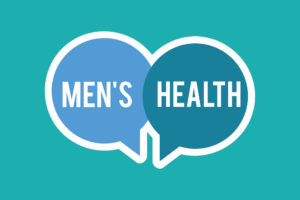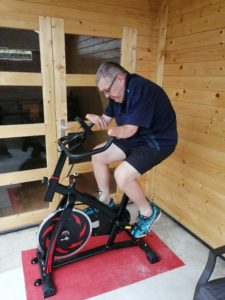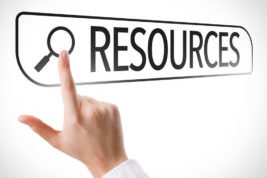Health Issues Affecting Men
To support our male beneficiaries we are creating resources on health issues that affect men disproportionately. The aim is to raise awareness of problems that men may have or could develop, and gain the courage to do something about it.
We have a number of beneficiary volunteers trained as Men’s Health Champions who are available to guide and support men in finding the right information or services on how to improve their health.

Key health issues affecting men
- Prostate cancer
- Bowel cancer
- Depression and emotional wellbeing
- Drinking
- Diet, keeping fit and exercise
Prostate cancer
Prostate cancer is the most common cancer in men in the UK. It usually develops slowly, so there may be no signs for many years.
Symptoms of prostate cancer
Symptoms of prostate cancer do not usually appear until the prostate is large enough to affect the tube that carries urine from the bladder out of the penis (urethra). When this happens, you may notice things like:
- an increased need to pee;
- straining while you pee;
- a feeling that your bladder has not fully emptied.
These symptoms should not be ignored, but they do not mean you have prostate cancer as enlargement of the prostate can commonly occur without cancer.
What is the prostate?
The prostate is a small gland in the pelvis, found only in men.
About the size of a satsuma, it's located between the penis and the bladder, and surrounds the urethra.
The main function of the prostate is to produce a thick white fluid that creates semen when mixed with the sperm produced by the testicles.
Why does prostate cancer happen?
The causes of prostate cancer are largely unknown. But certain things can increase your risk of developing the condition.
The chances of developing prostate cancer increase as you get older. Most cases develop in men aged 50 or older.
Men whose father or brother were affected by prostate cancer are at slightly increased risk themselves.
Recent research also suggests that obesity increases the risk of prostate cancer.
Tests for prostate cancer
There's no single test for prostate cancer, but initial tests include a blood test and the doctor assessing the size of the prostate by examining the back passages.
If you are noticing any changes in when your go to toilet, eg increase need to pee, straining when you pee, getting up at night frequently, then you should speak with your GP.
Read further information on Prostate cancer on the NHS website.
Bowel cancer
Bowel cancer is one of the most common types of cancer diagnosed in the UK and can start in the colon or rectum. Most people diagnosed with it are over the age of 60, however you can be diagnosed at a younger age.
Symptoms of bowel cancer
The 3 main symptoms of bowel cancer are:
- persistent blood in your poo - that happens for no obvious reason or is associated with a change in bowel habit;
- a persistent change in your bowel habit – which is usually having to poo more and your poo may also become more runny;
- persistent lower abdominal tummy pain, bloating or discomfort – that's always caused by eating and may be associated with loss of appetite or significant weight loss.
Most people with these symptoms do not have bowel cancer. Other health problems can cause similar symptoms. For example:
- blood in the poo when associated with pain or soreness is more often caused by piles (haemorrhoids);
- a change in bowel habit or abdominal pain is usually caused by something you've eaten;
- a change in bowel habit to going less often, with harder poo, is not usually caused by any serious condition, it could be constipation.
Causes of bowel cancer
The exact cause of bowel cancer is not known, but there are a number of things that can increase your risk, including:
- age – almost 9 in 10 people with bowel cancer are aged 60 or over;
- diet – a diet high in red or processed meats and low in fibre can increase your risk;
- weight – bowel cancer is more common in overweight or obese people;
- exercise – being inactive increases your risk of getting bowel cancer;
- alcohol – drinking alcohol might increase your risk of getting bowel cancer;
- smoking– smoking may increase your chances of getting bowel cancer;
- family history – having a close relative (mother or father, brother or sister) who developed bowel cancer under the age of 50 puts you at a greater lifetime risk of developing the condition; screening is offered to people in this situation, and you should discuss this with a GP.
If you have any concerns due to seeing blood in your poo, changes in bowel habits or persistent tummy pains for three weeks or more you should speak with your GP.
Read more information on bowel cancer on the NHS website.
Depression
Depression is more than simply feeling unhappy or fed up for a few days.
Most people go through periods of feeling down, but when you're depressed you feel persistently sad for weeks or months, rather than just a few days.
Some people think depression is trivial and not a genuine health condition. They're wrong – it is a real illness with real symptoms. Depression is not a sign of weakness or something you can "snap out of" by "pulling yourself together".
The good news is that with the right treatment and support, most people with depression can make a full recovery.
How to tell if you have depression
Depression affects people in different ways and can cause a wide variety of symptoms.
They range from lasting feelings of unhappiness and hopelessness, to losing interest in the things you used to enjoy and feeling very tearful. Many people with depression also have anxiety.
These can be physical symptoms too, such as feeling constantly tired, sleeping badly, having no appetite or sex drive, and various aches and pains.
What causes depression?
Sometimes there's a trigger for depression. Life-changing events, such as bereavement, losing your job or giving birth, can bring it on.
People with a family history of depression are more likely to experience it themselves. But you can also become depressed for no obvious reason.
When to see a doctor
It's important to seek help from a GP if you think you may be depressed.
Many people wait a long time before seeking help for depression, but it's best not to delay. The sooner you see a doctor, the sooner you can be on the way to recovery.
Living with depression
Many people with depression benefit by making lifestyle changes, such as getting more exercise, cutting down on alcohol, giving up smoking and eating healthily.
Read further information on depression on the NHS website.
Emotional and mental wellbeing
Support services from the Trust
We appreciate that life events can sometimes leave us feeling down, lonely or just needing someone to talk to. For advise on mental wellbeing visit the Emotional Wellbeing area on our website.
If you're experiencing low mood or would like someone to talk to, please call our Health & Wellbeing team on 01480 474074 who will listen and be happy to help.
TalkTogether
We have set up a scheme called ‘TalkTogether’ where a team of beneficiary volunteers have been trained to provide weekly support via a telephone conversation to help reduce loneliness.
If you would like to receive a weekly call or want to know more about this please speak with Annabelle Blackham on 01480 474074 or visit the Talk Together page on our website for more information.
Lift-Up
Lift-Up is a self-help service to support those who are experiencing low mood.
This service includes support by a trained beneficiary Lift-Up supporter with a weekly telephone call to help you understand what low mood is and how to make changes to improve your mood.
If you would like to know more about this service, please speak with Michelle Robinson on 01480 474074 or visit the Lift-Up page on our website for more information.
Drinking and alcohol
Why do I enjoy drinking?
Alcohol makes people feel more relaxed, easing anxiety and reducing inhibitions. It acts as a social lubricant, and as such plays a central role in many cultures. When in the form of beer, wine or spirits, alcohol also tastes very, very nice (at least to most people).
Are there advantages to moderate drinking?
Not really. Some research suggest moderate drinkers live longer than both excessive drinkers and complete abstainers but this probably due to factors other than alcohol intake. The NHS now suggest there's no safe level of drinking - other than not drinking at all. The NHS says you should drink no more than 14 units of alcohol (about 5-6 pints of beer) a week with some days off and no single session of more than 8 units.
Read more on the NHS guidelines on drinking alcohol.
What are the risks from excessive drinking?
As well as the unpleasant hangover in the morning, in the long-term, excessive drinking damages pretty much every organ in the body. The risks of frequently drinking above the safe levels are:
- weight-gain — a pint of beer contains nearly 200 calories (more than a packet of crisps);
- heart problems — reduced efficiency and increased risk of disease;
- nerve damage;
- depression — two-thirds of suicide attempts are alcohol related;
- impotence and infertility — even moderate drinking will reduce sexual performance (though not desire);
- cancer — of the liver, mouth, tongue and throat;
- liver disease — hepatitis and cirrhosis;
- digestive problems — ulcers, gastritis and pancreatitis.
Do I need to stop altogether or just cut down?
Only you know that. Test yourself with the following questions:
- Do you ever drink above the safe limits?
- Are you drinking every day?
- Do you ever drink to cheer yourself up?
- Do you ever feel as if you can't get through the day without a drink?
- Is drinking affecting or interfering with your work, relationships or social life?
- Do you think about drinking when you're not doing it?
If you answer "Yes" to any of these you probably need to think about your drinking and be aware of its role in your life. You can read more on the alcohol awareness page on our website.
If you are concerned about your drinking speak with your GP.
Read further information on drinking alcohol on the NHS website.
Eating a balanced diet and getting regular exercise
Eating a healthy, balanced diet and getting regular exercise is an important part of maintaining good health, and can help you feel your best.
This means eating a wide variety of foods in the right proportions, and consuming the right amount of food and drink to achieve and maintain a healthy body weight.
Take a look at our information on how to maintain a healthy diet.
As well as a healthy diet, it is important to have some regular exercise.
Read our information how to maintain a good exercise regime, giving suggestions on how much activity and exercise is required as well as suggestions on types of activity.
Need to talk to someone?
If you would like to talk to someone in confidence about any health issue, the Trust can help.
We have a number of trained Men's Health Champions who will listen, then guide and support you to find the right information or services on how to improve your health.
Simply call the Health & Wellbeing team on 01480 474074 to request to speak to a Men's Health Champion.






